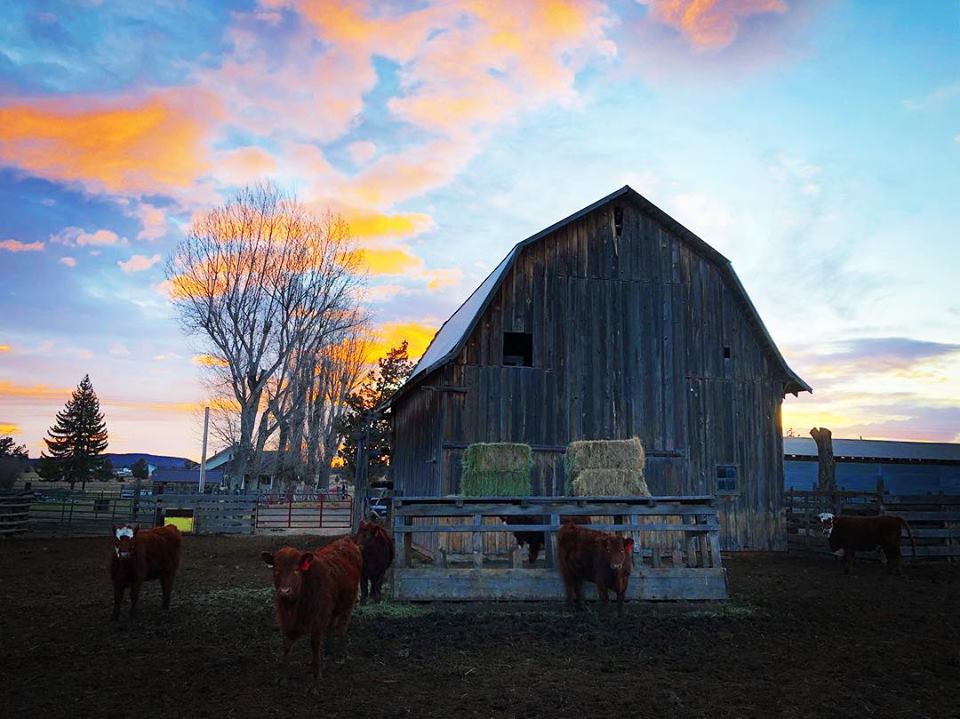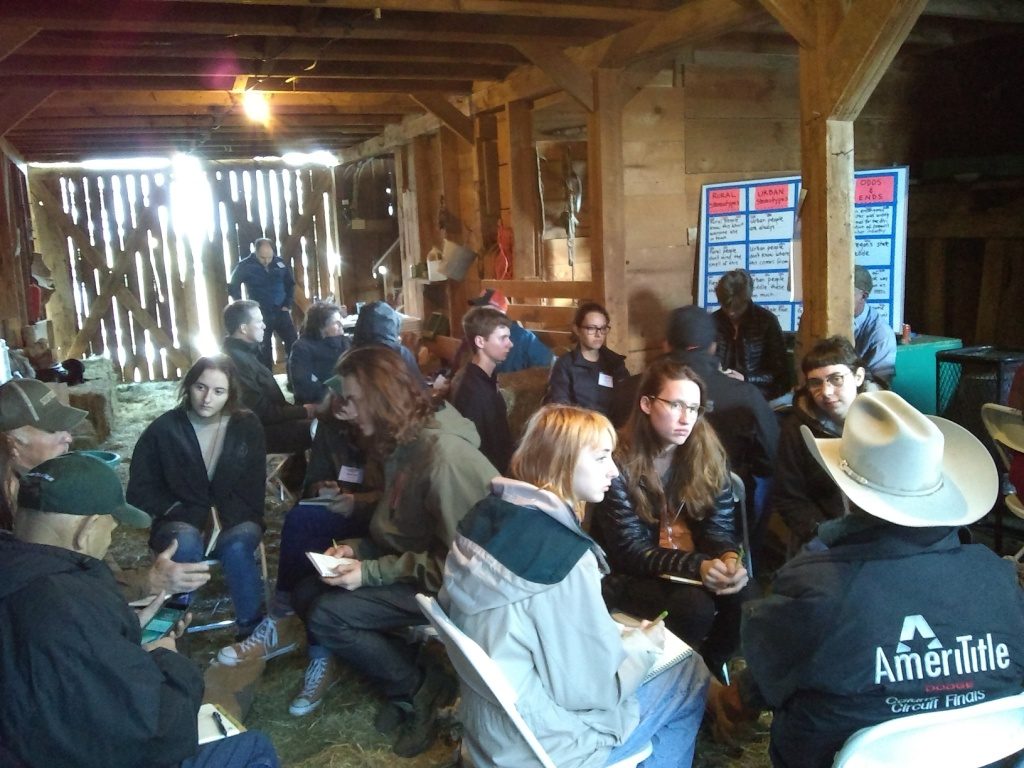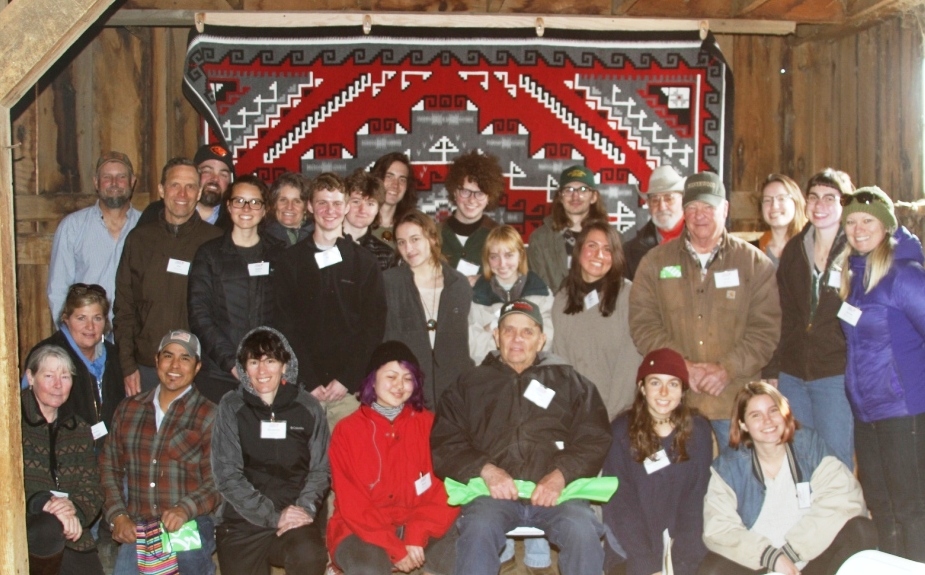
Into the Central Oregon barn walked students with purple hair, red Chuck Taylor high tops, and silver nose rings. They were gay and straight, male and female; each of them young, and all of them environmental studies majors from Lewis and Clark College in Portland.
Greeting them were farmers in Oregon State baseball caps and ranchers with silver hair beneath cowboy hats, and small timber operators with the scars to prove it. Some were young, but most were less young, and all had lived their lives and were making their living on the soil of the small Crook County community of Powell Butte.
Thus began a day designed and facilitated by Healthy Democracy as part of their “Democracy as Community” programming, work begun in 2017 with a grant from the Oregon Community Foundation to support urban/rural bridging projects. These programs, rather than focusing on reform of large institutions of democracy, start instead with the smallest unit of democracy, the individual citizen, and works to enhance their ability to hold the tensions inherent in a diverse democratic society in a way that strengthens rather than destroys the civic community.
The Powell Butte experience was designed to offer a unique opportunity for program participants to be in direct relationship with their fellow citizens who came from a significantly different geographic area. There, the power of place was a central character in the exploration of differing perspectives on a range of social, political and economic issues.
The Lewis and Clark students had arrived in Central Oregon the night before for an orientation by Healthy Democracy staff on the use of dialogue to deepen the understanding of difference, and to further understand dialogue as a necessary skill in a pluralistic democracy. The student group also developed a set of questions for the members of the ranching community based on the article “Fractured West” from the City Journal magazine, which featured interviews of rural Oregonians sharing their views on land and natural resource management issues.
The students were greeted warmly if cautiously upon their arrival at the ranch. There, as persistent sunbeams peaked through the gaps in the wood slats of the barn, they set about exploring the deeply personal and often complex influences that shaped each other’s worldviews and sense of place, history, and identity. Kicking off the day’s activities was one of the co-owners of the C Bar C Ranch, Ty Yazzie, who shared stories from his Navajo culture, and how his background in mining and ranching in both his home state of Utah and his adopted state of Oregon informed his views of the land and environment. As if to underscore the importance of that heritage to the visiting students, Mr. Yazzie hung a large and stunningly beautiful Navajo rug woven by his own mother as a striking and memorable backdrop for the day’s conversations. “I could talk about my culture and they would probably listen,” he said later, “but to have the rug there, I feel it helped my words stick into their minds like the fibers in that rug.”

After six hours of large and small group dialogue in the 100-year-old barn that sounded at times as though the howling winds outside were going to knock it down once and for all, the Portland students and Powell Butte ranchers were invited to talk about what the experience had meant to them. It was clear that the wind itself had become a powerful symbol, “blowing away the walls we had between us,” Ty Yazzie later remarked, “the prejudices, the preconceived feelings we thought we had of each other, the chips we had on our shoulders.”
The rest of the group appeared to agree. From the students came comments like this: “I realized that things I think are right are actually very complex…” “It’s humbling to hear another person talk about their experiences and just listen to them and really understand their life.” “So much of politics is very binary, and it’s great to sit here and strip away some of the labels and engage with real people directly.” “It’s special to hear all this. I will always remember the conversations that pushed me out of my comfort zone. Conversations today have been uncomfortable but also exciting and educational.”
And from the host community ranchers and farmers, comments such as: “I have not been around a group of young people like this that truly listened. The way they were was just incredible…” “I’d like to thank the young people for the interest they had in what old fellows like me had to say. And all the questions they had to ask. And while we didn’t always agree, we didn’t argue either. I thank them for sharing and putting in the effort to come all the way out here.”
The simple but radical act of listening to understand had begun a transformation, with each person able to hold tensions with more curiosity and less judgment, and replacing mutual suspicion with the seeds of trust. Mr. Yazzie summed it up this way: “The feeling I had at the end of that day was almost the same way I feel after it rains all night and then getting up in the morning and it’s sunny. It’s clear. There’s a sense of calmness. It’s how I feel when I think about what one of the students said about how when we first arrived we were in our separate groups, but by the end we were all mixed together – like one family.”


